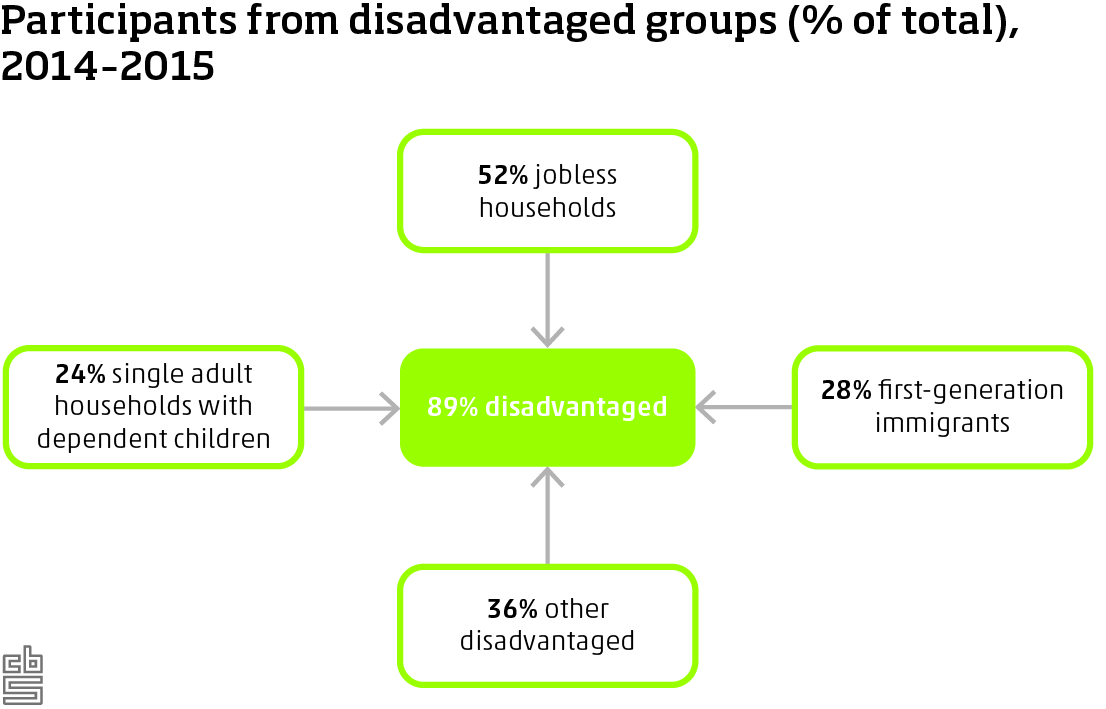94,000 Dutch participants in EU labour market project

Over two-thirds of projects funded by ESF grants are implemented by local governments, the remainder by schools. The latter primarily involves (ex-)students of secondary special education and practical education (VSO-PrO). The projects - which are aimed at improving employment opportunities - include setting up traineeships, traineeship and job placement, and (re)training.
In total , 56 percent of the participants were under 28 years of age. In local government projects the share of men versus women was fairly equal, while in school projects, male participants were in the majority (62 percent).
| Elderly (>50 yrs) | Adults (28-49 yrs) | Young (<28 yrs) | |
|---|---|---|---|
| All participants | 14 | 30 | 56 |
| Municipalities | 22 | 47 | 31 |
| VSO-Pro | 0 | 0 | 100 |
7 in 8 ESF participants belong to a disadvantaged group
Among the participants taking part in an ESF project during the 2014-2015 period, 89 percent belonged to at least one of the groups which have been identified as disadvantaged by the European Commission. For instance, more than half of all participants are living in households without an income from employment; nearly one-quarter are in a single-parent household with dependent children. Furthermore, 28 percent are first-generation immigrants.

Over the period 2014-2015, a total of 15,150 participants completed an ESF track. Among this group, 20 percent found a job immediately after the project. Among the 12,884 disadvantaged participants who completed a track, 27 percent found a job right after it.
The ESF-monitor 2014-2020 follows the labour market position of all participants in the programme period through time, from the start of their ESF programme up to twelve months after.
Sources
- Fact sheet - Fact sheet - ‘ESF in the Netherlands’